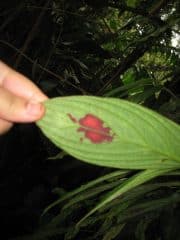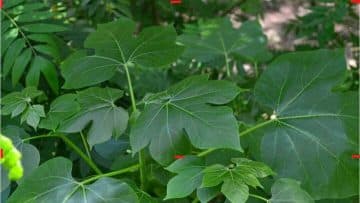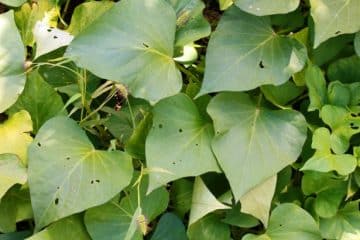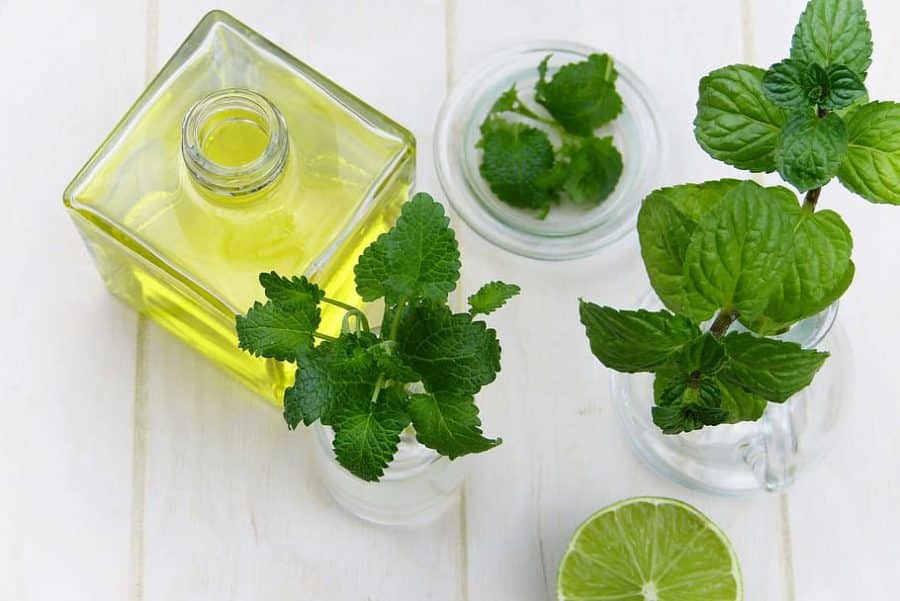One of the ways to combat iron deficiency and abnormally small red blood cells signifying anemia is the use of a Nigerian blood tonic leaf. It will help to restore good level of blood, and consequently adequate amount of oxygen, transported to the cells and help with respiration.
Quick Facts About Blood Tonic Leaf
Blood tonic is available in every drug store and pharmacy across the country but sometimes, you need to have access to these blood tonics faster than you can get them in a drug store. Although blood tonics are not prescription drugs, it might be a challenge to get one, especially if you reside in a place that is far from the nearest drug store. However, you can use some herbs and vegetables that pass as blood tonic leaves in Nigeria, and get the most efficient of results.
After reading this article, you will have the best Nigerian blood tonic leaf options to choose from. We will not only give you these vegetables, we will also outline the nutrients they contain and it may surprise you to find out that you can find some of these tonic leaves in your immediate surroundings.
What is the Purpose of Blood Tonic Leaf?
Blood tonic leaves are vegetables and herbs that are capable of improving the blood profile of an individual by consuming them as food or extracting and drinking their juice. These leaves are an effective means of battling anemia in children and adults. As opposed to what you may be thinking, blood tonic leaf is not one type of leaf, there are different leaves that exist and have been used in alternative medicine, and especially by traditional medicine practitioners, to boost the red blood cell count of an individual.
It is, therefore, safe to say that the purpose of any blood tonic leaf, though it might not be its primary purpose, is to help boost the red blood cell count and improve the blood profile of any individual that uses it. For instance, an individual that is anemic is usually placed on a blood tonic that supplies his or her body with iron and other nutrients that support the uptake of iron and contribute to the formation of blood cells.
The use of herbs that serve as blood tonic should be encouraged to battle the iron nutritional deficiency that leads to anemic conditions in children and pregnant women, especially.
Who Should Use Blood Tonic Leaf?
Blood tonic leaf is suitable for every individual who seeks to improve their blood profile. The importance of using blood tonic leaf stems from the inadequate amount of hemoglobin in the blood. Hemoglobin is responsible for the red color of the blood and also helps in transporting oxygen from the lungs to the cells throughout the body. Without oxygenated blood, the cells in the body dies because it is the fuel that help to burn digested and absorbed food substances, which in turn provides energy to the body through respiration.
When there is shortage of hemoglobin, affected individual notices the following:
- Dizziness – as a result of low energy output from respiration.
- Looking pale – since the number of hemoglobin (compound that gives the blood its red color) is low.
- Poor muscular function
- Reduced mental power
- Slight shock sensation around the extremities of the body.
People who often feel these symptoms should use any available blood tonic leaf they can find around them, at least till they can inform their doctor of the symptoms they are experiencing.
How Does Blood Tonic Leaf Work?
Blood tonic, although not a medically accepted term, works by addressing the cause of anemia. In every case of anemia, the root cause might be due to nutritional deficiencies as in iron deficiency, folic acid deficiency or vitamin B12 deficiency. Also, if the cause of anemia is physiological, as in the case of bone marrow inefficiency, then the solution is not the use of blood tonic.
Blood tonic leaf works by supplying the deficient nutrient to the body, thereby, making the production of blood cells and platelets available at the required level. Therefore, a blood tonic leaf that is abundant in iron cannot be used to treat anemia caused by folic acid deficiency and vice versa.
For this reason, it is better to consult your doctor and undergo test as to why you are anemic before using any blood tonic leaf.
Nigerian Blood Tonic Leaf Options
After ascertaining the cause of your anemia and it is not related to old age or bone marrow inefficiency, you can choose one of the following blood tonic leaves to treat your anemic condition with regards to the needed nutrient.
-
Ugu (Fluted Pumpkin) Leaves
Ugu leaves are a common blood tonic leaf in Nigeria, it is no wonder it appears first in this list. Fluted pumpkin, popularly called Ugu leaves, are commonly used to prepare a vegetables soup delicacy to eat swallows in many Nigerian homes. It is also commonly recommended for use, in combination with milk to help treat anemia.
According to a hematology study carried out on fluted pumpkin, it is said that the ugu leaves are rich in Iron and can be used to boost blood levels in the body. However, it is important to note that it will only be effective if the anemic condition is caused by iron deficiency.
-
Blood of Jesus (Justicea carnea) Leaf
Justicea carnea, with the common name blood of Jesus, here in Nigeria, gets its name due to its characteristic red juice that is consumable and used by traditional medicine practitioners to cure anemia. Although, the name has some religious fanaticism attached to it, its efficacy in improving blood level is legendary.

The extract of the leaves is believed to be rich in minerals such as iron, and is abundant in vitamins ranging from A, B1, B2, B9, B12, C, and E. this makes it a leading blood tonic leaf among traditional medicine practitioners.
-
Iyana-paja (Jatropha tajorensis) Leaf

Iyana-paja leaf is also called “hospital too far” due to its ability to hold off ailments such as anemia. It is abundant in Iron, an important mineral in blood hemoglobin production and an important part of oxygen transportation from the lungs to the cells. It is also rich in antioxidants and phytochemicals.
-
Hibiscus (Zobo) Leaf
Popularly called zobo leaf, it is a blood tonic leaf that is mostly given to children under the age of 5, battling with anemia. Zobo leaf gives a characteristic red to purple color when boiled and the juice extracted. There are different varieties of zobo and each gives different shade of crimson. However, according to a research carried out on the three varieties, it was found that Hibiscus sabdariffa, with wine extract has the highest amount of iron.
Thus, it can be used to treat iron deficient, anemic individuals.
-
Sweet potato Leaf
Sweet potato leaves are rich in minerals such as Iron, calcium, and zinc. It is also rich in protein, which is important in the formation hemoglobin, alongside iron. However, the presence of vitamin B makes this leaf a perfect blood tonic leaf to treat anemia caused by iron deficiency or folic acid deficiency.

It is commonly used to feed livestock but also has its usefulness for humans.
Conclusion
As there are many herbs for hair growth, herbs for hormonal imbalance, and herbs for other uses, there are also blood tonic leaves around us. These leaves help to treat anemia, depending on the cause and effectively restores the blood level to the required amount.
These blood tonic leaves are easy to come by and will cost you nothing compared to the blood tonics you will find on the shelves of drug stores. Investigate the cause of your anemia and choose a compatible blood tonic leaf to treat the condition.
The content is intended to augment, not replace, information provided by your clinician. It is not intended nor implied to be a substitute for professional medical advice. Reading this information does not create or replace a doctor-patient relationship or consultation. If required, please contact your doctor or other health care provider to assist you to interpret any of this information, or in applying the information to your individual needs.

